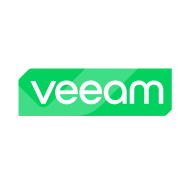

Veeam Data Cloud for Microsoft 365 and NetApp Cloud Backup compete in cloud data management. Veeam tends to have the upper hand on pricing and customer support, while NetApp is noted for its comprehensive features.
Features: Veeam Data Cloud for Microsoft 365 provides automated backup and seamless integration with Microsoft applications, emphasizing ease of use. It supports streamlined compatibility and efficient operation. NetApp Cloud Backup offers extensive data management capabilities, superior data retention, and robust restoration features, making it valuable for advanced data management.
Ease of Deployment and Customer Service: Veeam Data Cloud offers quick setup and responsive customer service, simplifying deployment. NetApp Cloud Backup's versatile deployment model may require more initial setup. Veeam's customer service is rated higher for responsiveness, while NetApp provides comprehensive support for complex solutions.
Pricing and ROI: Veeam Data Cloud is cost-effective, with lower setup costs and substantial ROI through simplified operations and affordable ongoing expenses. NetApp Cloud Backup may have a higher initial cost, but its extensive feature set offers significant ROI for those needing advanced data management capabilities.
Veeam is a good investment in general.
My customers have reported that when they open a ticket, even complex issues get resolved swiftly with a remote session.
I find Veeam's customer service and support to be excellent, rating them ten out of ten.
Veeam Backup is quite scalable.
I have not faced any issues impacting my operations or my customers' operations.
One area that needs improvement is the pricing of Veeam Backup, as it can be expensive at twenty-eight dollars per user for one year.
If one administrator wants to delete something in 365, another admin must approve it.
Transitioning to a cloud solution was not cost-effective for us.
The most valuable features of Veeam Backup for Microsoft 365 are its intuitive interface, ease of use, and unlimited capacity for backup and restore.


NetApp Cloud Backup is a fully integrated service for cloud backup and restoration. It was created to comply fully with NetApp's native data management software ONTAP, used for hybrid cloud experience. NetApp Cloud Backup is used to create backup and restoration for the protection and archiving of data, databases, and virtual machines related to the Cloud and On-Premises data in ONTAP. The way NetApp Cloud Backup works is by automatically creating block-level incremental backups. This ensures that the created backups are very fast and easy to restore. It is suitable for data protection regarding on-premises software as well as in the public cloud. NetApp Cloud Backup provides users with the ability to protect their cloud data at affordable prices and with a user-friendly interface so they don't need a lot of technical knowledge to be able to secure their cloud storage.
The copies created by NetApp Cloud Backup can be stored in the user's personal object storage in the cloud as well as on premises with StorageGRID - NetApp's storage platform. The backup copies can be restored to the original source or to a different source in Cloud Volumes ONTAP. NetApp Cloud Backup provides backups to AWS, Azure, and Google Cloud.
The features NetApp Cloud Backup provides include:
In addition to enhanced security and protection from malicious attacks, the advantages of using NetApp Cloud Backup include:
Abbasi P., a User at a financial services firm, likes that NetApp Cloud Backup is a completely agentless solution.
A Service Manager at a tech services company values its stability, scalability, and good technical support.
Veeam Data Cloud for Microsoft 365 offers powerful data protection and recovery for Microsoft Exchange, SharePoint, OneDrive for Business, and Teams, ensuring users maintain full control of their Microsoft 365 environment with simplified, policy-driven security.
With a cloud-native design, Veeam Data Cloud delivers seamless protection for Microsoft 365 and Azure data, along with secure architecture founded on a zero-trust principle. The platform combines all essential backup services into one cost-effective package, including software, infrastructure, and storage. Ease of use and granular restoration features allow item-level recovery for mailboxes, SharePoint, and OneDrive. Its intuitive management interface fosters quick setup and administration, while robust backup and replication capabilities secure data across leading platforms like Amazon, Azure, and IBM Cloud. Though praised for stability and scalability, areas for improvement include enhancing backup granularity, optimizing storage, and expanding integration.
What are the key features of Veeam Data Cloud for Microsoft 365?In industries relying on robust data security and compliance, Veeam Data Cloud for Microsoft 365 stands out by ensuring comprehensive protection of Office 365 assets like emails, SharePoint, and Teams data. Organizations manage shared responsibility effectively, addressing data loss concerns from cyberattacks and ensuring regulatory compliance while maintaining data accessibility independent of Microsoft's data protection frameworks.
We monitor all Cloud Backup reviews to prevent fraudulent reviews and keep review quality high. We do not post reviews by company employees or direct competitors. We validate each review for authenticity via cross-reference with LinkedIn, and personal follow-up with the reviewer when necessary.